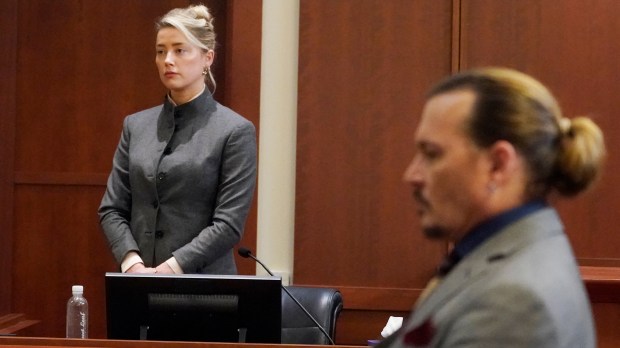Lenten Campaign 2025
This content is free of charge, as are all our articles.
Support us with a donation that is tax-deductible and enable us to continue to reach millions of readers.
The nation has been gripped in recent weeks by the Johnny Depp v. Amber Heard case. The televised six-week trial has given its global audience an insight into the unraveling of a marriage, in all its sordid detail.
The verdict stating that “Amber Heard acted with malice” in her defamatory published articles will hopefully bring some much-needed closure to Depp, and even to Heard, his ex-wife.
Personally, I haven’t wanted to be a witness to it. After all, behind all the celebrity are two individuals who seem broken in various ways, and whose marriage has failed. Yet, while I haven’t been hooked on every detail of the trial, many young people have. And perhaps that’s not such a bad thing — but before you think I’m crazy for saying that, just hear me out!
I teach young adults who’ve all been glued to the trial in France. (Some actually stayed up all night to watch it.) Many were big Depp fans, others wanted to know more about the whole process. And herein lies a few of the positives I see coming from this highly scrutinized televised trial.
1Learning about the judicial system
Johnny Depp achieved something that many other plaintiffs have failed to do in the past: He managed to win a defamation case, which is notoriously difficult to do in the U.S due to the extent of free speech laws and the complex threshold that has to be met in order to win such a case.
Therefore, the six long weeks proved an incredible learning opportunity. Youngsters have learned the complexities of the law, the language involved, and the difficulties that arise in seeking justice in a legal context.
2Thinking about what justice really means
We so often hear “it’s not fair,” and then allegations get thrown around rather loosely, which can cause significant damage, emotionally, and sometimes financially.
Yet something that cannot be forgotten, especially as this case showed, is that justice itself isn’t always “fair.” The process of seeking justice means that Depp had to put faith in the five men and two women of the jury. Details, often gruesome, came to light. It was humiliating for both parties.
In fact, even though the verdict went in Depp’s favor, people may argue that it doesn’t really feel like justice when so much damage has been done. And that’s a takeaway for many young people. Justice is primarily being able to have your rights recognized, but not necessarily about being rewarded for an injustice that has occurred against you.
Interestingly, Depp’s first public comment after hearing the result was: “The jury gave me life back, I’m truly humbled.” And this is the potential beauty, and power of justice, when it works. It’s a process that can require us to look at ourselves, reflect on our actions, and realize that sometimes the justice you seek isn’t always wrapped up in a pretty bow, and maybe you’ll never find justice in this life.
3The role of social media in our lives
One of the biggest things for our youngsters to learn from this case is how they engage on social media. Since the court case, social media has been abuzz with billions of comments, hashtags, insults, and — most disturbingly — death threats.
There have been some armchair legal experts who’ve acted as jury and executioner. Some have questioned whether the trial itself could even be fair, with such heightened media interest around the world.
Our kids need to learn that every comment/opinion/emoticon they share can have ramifications. Their opinions or off-hand written remarks can become part of the voice of an online mob and be really destructive. After all, there were so many pro-Heard fans that became pro-Depp fans in the court of public opinion.
Whether you appreciated Heard’s perspective or not, at one point in the trial she explained that she is receiving constant death threats courtesy of this mob mentality. She has a young baby to protect and yet people think it’s within their rights to attack her and threaten her from the safety of their keyboard. This is not okay, and young people need to see the damage this can do.
4The damage of accusations and lies
We all know it’s never good to lie. But throughout the trial certain lies were exposed and demonstrated the damage they can do to a person’s credibility and honor.
Every word that came from the two parties was painstakingly analyzed by lawyers, body language experts, social media crowds, fans, and people who’ve been victims of domestic and sexual abuse.
These words mattered. People are now concerned about what setbacks Heard might have caused for real victims of sexual abuse and domestic violence. And this perhaps leads us to the overall lesson from the trial for both young and old: We have to be accountable for our words and actions, and being honest makes that job a whole lot easier.



